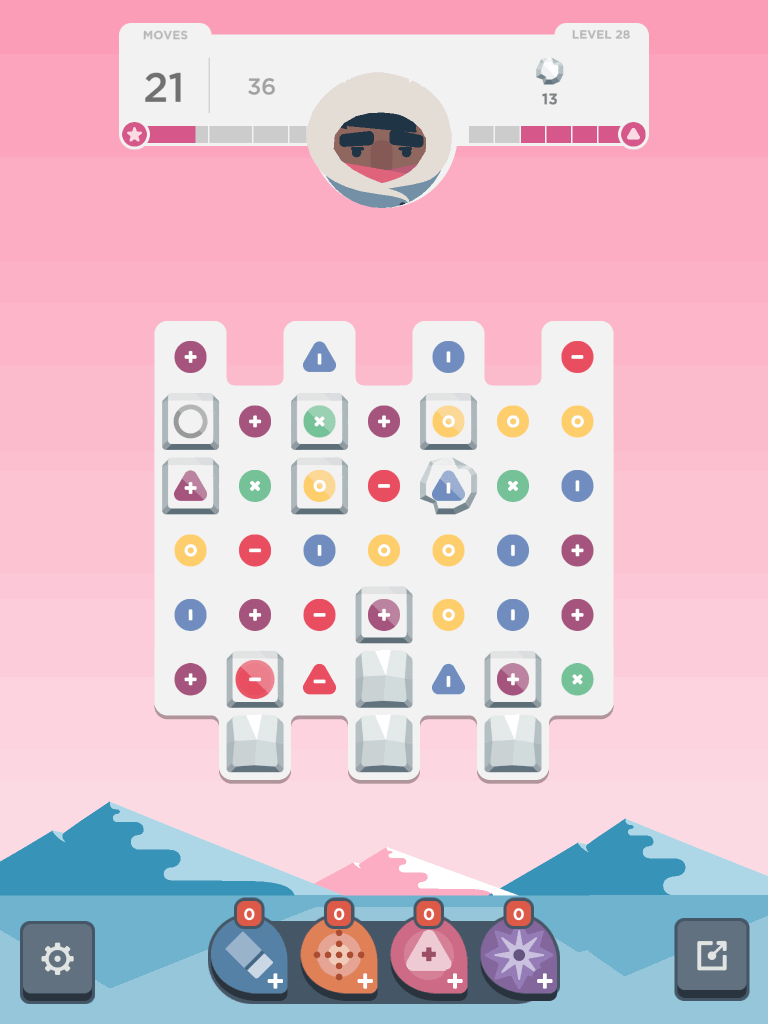In 2016, I was fired from a job I loved.
I’d worked hard to earn a seat at the executive table of an agency, giving up on many of my other aspirations in the process. But when faced with a CEO that lacked an understanding of boundaries, I lost my cool one fateful day and found myself out of a job.
I was heartbroken. It was hard not to take it as a personal failure. I was angry, and even with therapy, I couldn’t stop replaying the events in my head.
In the throes of a deep depression, I needed to occupy my time. In spite of considering myself a writer, I lacked the inspiration to write. In fact, I didn’t feel like doing much of anything. On days I could pull myself together, I applied for jobs. On days I couldn’t, I cried. When I wasn’t crying, I scrolled through Facebook and Reddit, which paradoxically made me feel both connected and disconnected at the same time.
During one of these sessions, I came across an article about a new, meditative mobile phone game. It touted beautiful visual imagery, relaxing music and peaceful gameplay.
Before long, I’d downloaded Dots & Co. At the beginning, it seemed like a simple way to pass the time. What I didn’t realize is that the game was also exactly what I needed in order to get myself back on my feet.
A Lifetime Of Games
Leading up to that job, I’d made a choice to cut video games out of my life. It wasn’t that I no longer enjoyed them — it was that I enjoyed them too much. As an adult, I'd internalized the idea that video games were merely a way to waste time when I should be doing more “adult” things. In an effort to increase productivity, I’d gotten rid of my TV, given away my Nintendo Wii and deleted all my game apps from my phone.
In college, I’d spent a year of my life in the EverQuest universe. I’d also had an intense stint playing Guild Wars. A a child of the ‘80s, I’d grown up with Mario and Sonic. On long car rides, I played Tetris on the Game Boy.
But even with all those options, the game I remember playing most is one gamers don't think of very often: Minesweeper.
My family got a home computer sometime around 1989. Back then, PCs ran Windows, and Windows itself had a few built-in games, such as Solitaire and Mahjong Solitaire. But, at eight years old, I had no idea how to play either of those.
It also came with Minesweeper, which was a simple numbers game. When there was nothing else to do, I played it.
Later, after I got my first laptop in college, I played Minesweeper during class. Sitting through long and boring lectures, I’d keep myself awake by clicking random squares and solving puzzles. Minesweeper required just enough mental endurance to hold my attention. It didn’t require as much cognitive work as other games I liked but was enough to keep me occupied while the aspiring anthropologists around me learned the significance of cultural relativism.
Perhaps that’s the magic of the puzzle game. It’s an escape that functions more as a mental exercise than “fun,” in the sense that, say, riding a roller coaster is “fun.” Puzzle games may even improve a person’s cognitive health - though the evidence for that is limited.
Games like this offer players a meditative experience. Modern interpretations of meditation conjure up images of someone sitting cross-legged on a pillow, eyes closed, listening to ambient music. But there are, in fact, many forms of meditation. Who’s to say that puzzle games aren’t an adequate path to the same calmness and emotional regulation that more traditionally-recognized forms of meditation purport to offer?
How I Connected the Dots
Dots & Co. is a simple game. Available as a free download for iOS and Android, it involves dragging your finger around a screen to connect lines of dots, which then disappear. The remaining dots drop to make way for new ones. Later levels have different obstacles, like blocks of ice that require players to move past them several times before they break and expose the dots inside of them. The objective usually involves clearing certain numbers of dots or obstacles within a set number of moves.
Players start with a set amount of in-game currency and must use it per each attempt, winning it back when they successfully complete a level. When they have no more currency remaining, they either have to buy more or have to wait out a timer. As someone who spends very little on microtransactions, the timer was a great way to force me to take breaks and shift my attention to other tasks.
In the aftermath of being fired, I spent hours connecting dots. Each time I passed to the next stage felt like an accomplishment. Slowly but surely, these little wins improved my mood and allowed me to celebrate little wins in my own life.
I continued to play the game for months, stopping only once I became bored of it after more than 300 levels. I decided it was finally time to say goodbye to the little puzzle game that helped me regain some balance in my life.
For many, a mobile game may not seem to be the best way to cope with life’s challenges. But for me, it was certainly healthier than any outward expression of anger.
Frequently, when we think of gamers, we think of people who play RPGs or FPS games. But gaming is so much more than that. While a game like Dots & Co. may not have the prestige allure of Death Stranding or the fast-paced action of Modern Warfare, there’s a place in the ethos for games that are simple, repetitive and, in some ways, mundane.
With that, it’s time to give those puzzle games the appreciation they deserve for the roles they play in our lives. If you’re looking for a simple way to reflect on challenges in your own life, perhaps a simple puzzle game can also help you connect the dots.


